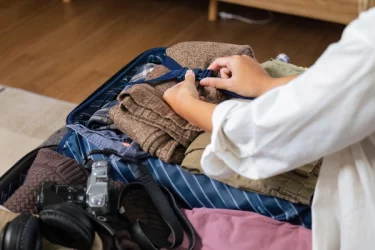Facing surgery can be a difficult experience for anyone, regardless of age. But for the elderly and their caregivers, it can be especially stressful. That’s why we’ve put together some practical insights and support for families preparing for an elderly parent’s surgery. From pre-surgery preparations to post-operative care, we explore all of the essential aspects to help ensure a smoother journey and a full recovery.

Preparing for surgery
Making the right preparations for your elderly parent or relative’s surgery can make everyone involved feel more relaxed. It can also lead to a smoother and faster recovery. Here are some things to consider when getting ready for surgery.
Understanding the procedure
Try to learn as much as you can about your elderly parent’s planned surgery. Doing so can empower you to ask informed questions during consultations with medical professionals. It can also help to provide support throughout their medical journey. Research the procedure along with any potential risks and expected outcomes.
Our patient care team are always on hand if you have any questions about different medical treatment options.
Join the surgical consultation
Before the surgery, we will arrange a detailed medical consultation. This is where you’ll meet your parent’s dedicated surgeon and anaesthetist for a pre-assessment appointment during which you can ask for medical advice. This is your opportunity to ask questions and prepare yourself and your parent for the procedure.
The surgeon will discuss the procedure, care plan, potential complications and the expected recovery process.
Help out with medical assessments
You may need to help your parent complete any required pre-operative medical assessments. This may include blood tests, imaging and other diagnostic procedures to assess overall health and identify potential risks.
Hospital information
Get to know the hospital in which the surgery is taking place. This includes admission, expected duration of the hospital stay, and any pre-admission requirements.
It’s also a good idea to find out the address of the hospital and plan your route to avoid any unnecessary stress on the day. If you’re travelling from afar, you might even wish to consider booking into a nearby hotel. This is so you can be comfortable but close to your parent when he or she is discharged.
You can find information about parking, visiting times, and access information on each of our hospital pages.
Packing a hospital bag
Help your elderly parent pack a hospital bag. This should be filled with essentials such as:
- comfortable clothing
- toiletries
- reading materials
- any necessary documents or medications.
You may also want to include items that provide comfort and familiarity.
Preparing their home
Whether they plan to recover in their own home, with you, or in an assisted facility, you may need to make some modifications to their home environment. Preparing their home for surgery will help ensure a safe and comfortable return. This may include:
- installing handrails
- adjusting furniture placement
- removing trip hazards (e.g. loose-fitting rugs)
- arranging for mobility aids.
Home assistance
It can be helpful to arrange for home assistance during the recovery period. Whether it’s enlisting the help of family members, friends, or professional caregivers – your parent may need extra support with daily tasks while they get back on their feet.
During surgery
While your parent is having surgery, it can be an anxious time. It’s important to remember that they are in the safe hands of experienced medical professionals who have performed similar procedures many times.
Try to take your mind off things by getting on with work or doing a relaxing activity you enjoy. You could even use this time to make arrangements for their recovery if it helps you feel more prepared.
Lots of surgical procedures at Practice Plus Group can be performed as a day case – meaning they won’t have to stay in overnight. So, they may be back in their usual living space in a matter of hours!
Post-surgery recovery and care
During their recovery time, your ageing parent or family member may need a little extra help with daily life. Here are some tips for ensuring a smooth and successful recovery.
Attend all post-op appointments
You may need to take your parent to follow-up appointments with the surgeon and any other healthcare professionals involved in the recovery process. As with patients of any age, these sessions are crucial for monitoring recovery progress and addressing any concerns.
Medication management
Establish a system for managing post-operative medications. This may include organising a medication schedule, understanding potential side effects, and ensuring prescriptions are picked up.
Some older patients can be forgetful when it comes to taking the right pills on time. If this is the case with your parent, you may want to get a pill box labelled with the days of the week or supervise them taking the medication yourself.
Emotional support
Surgery can be tough both physically and emotionally, especially as we get older. Spending time with your parent as they recover, keeping other family members updated and leaning on your support systems can be very helpful during this time.
If you or your parent is struggling, consider seeking support from healthcare professionals or support groups. This can help to navigate any emotional challenges.
Preparing for surgery involves a combination of practical preparations and emotional support. By proactively addressing key aspects such as understanding the procedure, preparing their home, and arranging post-operative care, you can contribute to a more comfortable and successful recovery.
The right surgery can lead to a better quality of life and enhanced long-term health.
Get in touch to learn more about our surgical treatment options.
Pre-op planning for older adults: FAQs
Not found the information you’re looking for? Here are some frequently asked questions about surgery and older patients.
This varies widely, but one common procedure for older patients is joint replacement. Knee and hip replacement surgeries are common, especially for those dealing with osteoarthritis or joint degeneration. These surgeries aim to improve mobility, reduce pain, and enhance the overall quality of life.
Cataracts are another common age-related condition that causes clouding of the eye’s lens, leading to impaired vision. Cataract surgery involves removing the cloudy lens and replacing it with an artificial lens to restore clear vision.
Ageing can have an effect on the outcome and recovery process, especially if patients have pre-existing conditions. For example, it can take older patients longer to recover from surgery. However, this is dependent on individual health and lifestyle factors. Always talk to a medical professional about the risks and benefits of any surgery.
For more information of the risks and benefits of different types of surgery, take a look at our dedicated guides:
Surgery for elderly patients, like any medical intervention, comes with certain risks and considerations. Risks vary based on the type of surgery, the patient’s overall health and the presence of pre-existing medical conditions. Some general risks associated with surgery for older patients include:
- complications related to anaesthesia
- infection
- complications related to pre-existing medical conditions, such as diabetes
- blood clots
- cardiovascular complications.
All surgery comes with potential risks, no matter your age. Always speak to your surgeon to understand what these are while addressing any concerns.





